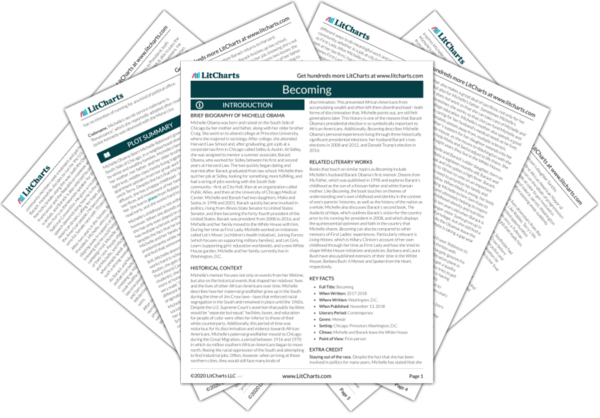LitCharts assigns a color and icon to each theme in Becoming, which you can use to track the themes throughout the work.
Optimism, Growth, and Fulfillment
Community, Investment, and Hard Work
Race, Gender, and Politics
Marriage, Parenthood, and Work
Power, Privilege, and Responsibility
